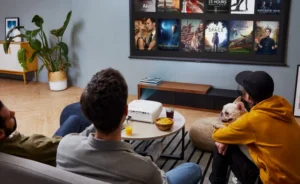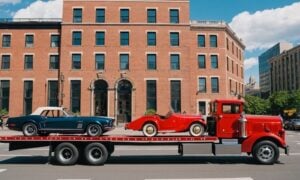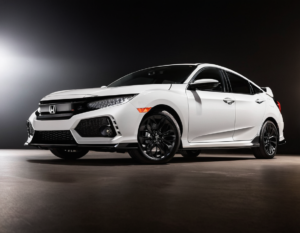Always Sunny’s movie parody episodes are The Gang at their best/worst

It’s Always Sunny in Philadelphia, almost nothing good ever happens to “The Gang” (the self-created name for the alcoholic, cruel, socially inept, and borderline sociopathic group of five friends who run a grotesque Philly dive bar). So when two members — Charlie (Charlie Day) and Dee (Kaitlin Olson) — are inexplicably wined and dined by a pair of wealthy, attractive siblings in “Charlie and Dee Find Love,” the group is wary. Dennis (Glenn Howerton), who is suspicious of budding romances, finally puts it into a genre that aligns with their selfish and miserable ideals. “This is … Dangerous Liaisons,” Dennis bitterly concludes as he spies on the date. When Mac (Rob McElhenney) is unable to follow, Dennis spits out a litany of films with the same plot of sadistic manipulation by wealthy people for sport, that are seemingly just off the top of his head: “Cruel intentions? She’s All That? Can’t Buy Me Love?”
Dennis’ effortless listing in this moment is one of Many The Gang sometimes turns to movies in need of clarity and counsel, though often in very misguided ways. They have a reverence for movies — often borrowing cinematic structures and tropes for their various evil and poorly planned plots, quoting or referencing films to make sense of a situation they are unable to process, or even occasionally paying highly questionable filmic homage, as evidenced by their controversial recreations of Lethal WeaponComplete with blackface. While we mostly see them drinking, plotting, and being generally awful, The Gang’s frequent cinematic references point to a lot of time offscreen being spent watching movies.
A good understanding of the cinema will help you expand your empathy. Cinema offers us a space to consider others’ lived experiences, to distance ourselves from our own perspectives, and to, at least for a few hours, look at the world around us a little differently. The Gang is renowned for their lack of humanity or empathy. However, cinema offers us a fresh set of scripts to indulge in even more debauchery and stranger stories.
Although they are able to comprehend narrative tropes, their social selfishness and ineptitude prevent them from ever executing any type of cinematic plot properly. In “The Gang Gets Romantic,” Mac becomes obsessed with the notion of setting up a romantic-comedy style “meet-cute,” seemingly just because he wants to meddle in others’ business. However, his friends seem almost incapable of understanding the notions of romance and connection.
:no_upscale()/cdn.vox-cdn.com/uploads/chorus_asset/file/23055644/IASIP2.png)
FX Networks Image
The food-centric, easily confused duo of Charlie and Frank think that Mac is offering them some imagined snack called a “meat cube,” while the predatory Dennis keeps referring to the women involved in Mac’s planning as “cute-meat.” And despite Mac’s best intentions, his general inability to understand how to actually enact genuine romance means his plans involve clogging toilets and eavesdropping on conversations of the couple they’ve ensnared in his convoluted scheme, who turn out, horrifically, to actually be grieving parents. By the end of Mac’s attempted “meet-cute” narrative, no one is in love, but everyone has been made It is amazingYou will feel uncomfortable and upsetting
Many smaller-scale attempts at taking over cinematic visions fail. Always Sunny episodes. Sweet Dee dreamt of making a Sex and the City –Dee makes a group of women friends and forces them to drink Cosmos and shop in glamour. The Gang’s attempt to create a Pretty-Woman-style arc for Frank’s sex worker girlfriend Roxy in “Frank’s Pretty Woman” leads not to some classy, whirlwind romance and proposal, but to the group hiding Roxy’s dead body out in a hallway after they enable her overdose on crack cocaine. Time and time again, The Gang simply employs the cinematic tactics they’ve absorbed over time in the worst, most destructive, most misunderstood way possible.
Their love of the movie franchise is perhaps their most clear expression. Thunder Gun Express (a film that they love mostly because the protagonist, John Thundergun, “hangs dong” once per film). As the group tries to get to the opening day of the film in “Thunder Gun Express,” they keep trying to do what they presume their beloved fictional action hero would do, but entirely inexpertly. They get stuck on trains, buses, and even in the sewer grates trying to play action hero. And while they constantly quote Thundergun’s catchphrase involving no man being left behind, they continuously ditch each other in selfish attempts to make it to the theater on time.
It is the one you have always wanted. Thunder Gun Express also gives The Gang an opportunity to share their cinematic beliefs when they are selected to be a focus group for the latest film in “Thunder Gun 4: Maximum Cool.” As the franchise works to keep up with the times, The Gang mourns all that was outdated about the original Thunder Gun Express Thundergun doesn’t hang dong anymore, most shockingly. The group gives terrible feedback to the moderator (“Write that down — women hate women,” Mac offers as a note at one point), and the often confused Charlie seems to have absolutely no idea what’s going on, with his only input being perplexed, obvious questions about the film he has literally Simply watched. Charlie has at times recited entire lines of dialogue from Dog Day Afternoon Or JawsHe seems to be representative of how much The Gang takes away from their movie-going adventures. The Gang’s inept and confused feedback demonstrates how much they seem to be able to process, despite their endless movie-watching.
:no_upscale()/cdn.vox-cdn.com/uploads/chorus_asset/file/23055649/IASIP3.png)
Even when The Gang isn’t stealing from the movies they watch literally, the very structure and aesthetics of many of Always Sunny’s The episodes draw on a vast cinematic library in bizarre referential homages. In “Maureen Ponderosa’s Wedding Massacre,” we open on handheld footage of The Gang careening around the forest in a panic, as overexposed lighting washes out their faces in a found footage-esque moment. In the craftily designed “Being Frank,” we follow a day in Frank’s life entirely through his visual POV, á la Spike Jonze’s Being John Malkovich. The show plays with noir aesthetics in the black-and-white “The Janitor Always Mops Twice,” with convoluted biopic-esque ’70s drug-filled romps in “Frank’s Brother,” and with the aesthetics of the true crime documentary craze in “Making Dennis Reynolds a Murderer.”
These cinematic tributes further highlight how absurd and delusional The Gang appears all the while. It is clear that these characters are far too egotistical to be considered movie star or geniuses. These characters stand out in these films, making them even more annoying despite their inclusion in filmic stylizations that make people relatable, more interesting or more appealing.
We expect rich cinematic backgrounds to give depth and a fresh perspective. Or at least, some semblance of sincerity. Always Sunny’s relationship with the movies is one that continually affirms how far from even a basic grasp of the universal human experiences of empathy, connection, and love these characters are. The Gang steals from iconic movies in failed attempts to better lie, cheat, manipulate, plot and “win” self-created mental mind games. The Gang stole from iconic movies in failed attempts to better lie, cheat, manipulate and plot against self-created mental mind games. It’s Always Sunny in Philadelphia, Everything we love about movies is misused and misunderstood in the most hilarious and absurd ways.
It’s Always Sunny in PhiladelphiaFXXX premieres season 15 on December 1.
#Sunnys #movie #parody #episodes #Gang #bestworst








